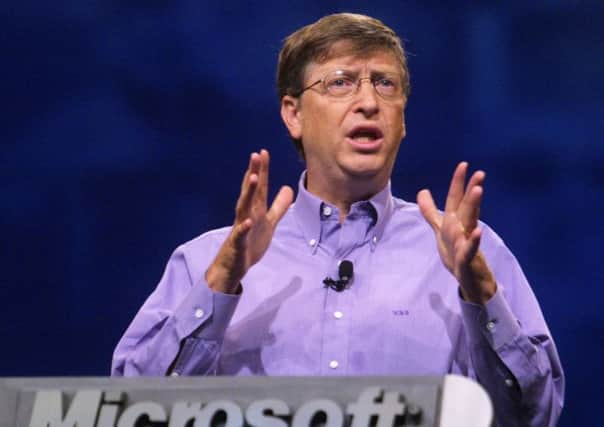Tech Talk: Why we might all get Windows for free


Mr Gates, it turned out, was not able to connect your fridge to the web single-handed; it would have taken Zanussi and all the other manufacturers to fall into line.
Yet he was right that the internet would not be constrained by conventional PCs: today it has cast its web across televisions, home security cameras and even central heating thermostats. The trouble for him is that none of them are running his software.
Advertisement
Hide AdAdvertisement
Hide AdIn order to remedy this, Microsoft is about to overturn its long-held premium pricing strategy and will instead start giving away its flagship product, Windows.
Exactly what they’re giving and to whom is still uncertain, but this much is clear: the forthcoming Windows 10 release will be handed out free to developers creating applications for micro-computers like the new Raspberry Pi 2. The idea is they will create useful functionality we will want in our homes and in doing so, restore Windows to the centre of our digital universe. This concept of connecting apparently random gadgets has become known as the Internet of Things. But the chief point of interest for most of us is the prospect of getting a free copy of Windows – especially if it’s for a Raspberry Pi 2, which only costs £30 in the first place.
Theoretically, you could add a few bits and pieces and have a fully working PC, viewed via a TV or existing monitor, for less than £60 – but it remains to be seen whether Microsoft’s largesse will extend that far. It also depends on whether users decide that they want Windows anyway.
Earlier this month, for instance, I built a kit PC for £150, including memory, hard drive and a case measuring just around four inches square – which I’m using as a media centre hooked up to my TV. I used the exotically-named but free operating system Ubuntu – a Windows-like version of the text-based Linux model favoured by programmers.
Advertisement
Hide AdAdvertisement
Hide AdMicrosoft’s new strategy starts to make sense: the only way they can persuade people to use Windows is to give it away. This can’t have been what Bill Gates had in mind when he envisioned the Internet of Things; it’s a dream that has returned to haunt him.